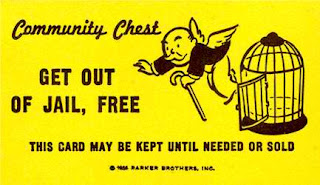Julian Assange and the Autism Defense
ASPartOfMe
Veteran

Joined: 25 Aug 2013
Age: 66
Gender: Male
Posts: 34,472
Location: Long Island, New York
Julian Assange Has Autism? The problem with forensic uses of a fuzzy diagnosis.
Stephen Greenspan, Ph.D., holds a doctorate in developmental psychology from the University of Rochester and did post-doctoral work at UCLA’s Neuropsychiatric Institute. He is a professor emeritus of educational psychology at the University of Connecticut and until recently had a visiting affiliation with the University of Colorado. He currently resides in northern California, where he maintains an active forensic psychology consulting practice in criminal cases where Intellectual Disability may be a mitigating or exempting factor.
The author of three books—What is Mental Retardation? (AAIDD, with H. Switzky), Annals of Gullibility (Praeger), and Elements of Discipline (Temple U.)—he has published numerous essays on aspects of social incompetence, particularly in vulnerable sub-groups but also in the general population. Recently, he has developed a theory of “foolish action,” and his book on that topic—Anatomy of Foolishness (Hamilton/Rowman & Littlefield)—is scheduled for publication in July 2019
The problem with the autism diagnosis, as with some other brain-based disorders, is that there is very wide variability in terms of the severity of the core symptoms, ranging from (the low-functioning end) people who lack oral communication, have severe intellectual deficits, and engage in repetitive self-stimulatory behaviors to, at the other (high-functioning) end, individuals whose communications are correct but odd, have narrow obsessional interests, and have average or above-average intelligence. It was because of this bifurcated nature of the autism population that the sub-type of Asperger disorder was added to the DSM in 1994 to encompass the odd but relatively non-impaired end of the spectrum.
In 2013, the fifth edition of the Diagnostic and Statistical Manual of Mental Disorders was released, and the Autism Spectrum Disorder (ASD) sub-category of Asperger Disorder was no longer in it. The reason for dropping Asperger Disorder was due to a feeling among psychiatrists that it was being used inappropriately because of its vagueness, and its substantial overlap with normal nerdiness or shyness.
It is my impression that British psychiatrists (who are under no obligation to use the American Psychiatric Association’s DSM manuals) never got the memo about autism being an over-used diagnostic category.
The judge who granted Assange’s petition to avoid extradition to the U.S. was persuaded that Assange would be a suicide risk if incarcerated in the U.S., because:
he was persuaded that the American prison system would treat Assange harshly
he was shown research suggesting an increased incidence of suicide among autistics (whose depression reflects a failure in social roles and social acceptance).
I have no reason to doubt that Assange (serving a prison sentence in the UK for violating his bail conditions) is depressed, nor that he has expressed an intention to kill himself if he has to face charges in an American court. But using Assange’s alleged autism disorder as an excuse seems a stretch, both because
there is little likelihood that autism is an appropriate diagnosis for him
people with autism commit crimes and go to jail (sometimes for very long sentences) and I have never before heard that autism provides an automatic “get out of jail free” card, either in Britain or the U.S.
This article is basically about Greenspan’s grudge. Nothing wrong with that, many of us also do not like the “autism defense”. Problem is his examples have spurious connection to the autism defense.
The “get out of jail free” card is a non issue in the Assange case. The issue was should he have been extradited not should he be imprisoned. Dr. Greenspan is basically correct in saying autism has not been a get out of jail free card. Being the OP of a thread hostile to the Autism Defense, what that defense has had some success with is shortening sentences. “Get out of jail free card” is a faux issue, what are real issues are should autism be taken into consideration in the sentencing process and stigmatization of autistics.
I can not figure out why he thinks British psychs are especially prone to over diagnosis. Since Aspergers was taken out of the DSM the American prevalence rate has not gone down.
_________________
Professionally Identified and joined WP August 26, 2013
DSM 5: Autism Spectrum Disorder, DSM IV: Aspergers Moderate Severity
It is Autism Acceptance Month
“My autism is not a superpower. It also isn’t some kind of god-forsaken, endless fountain of suffering inflicted on my family. It’s just part of who I am as a person”. - Sara Luterman
| Similar Topics | |
|---|---|
| Autism |
13 Mar 2024, 7:44 am |
| Autism and Suicide |
Yesterday, 9:25 pm |
| When autism is more obvious in some than others! |
16 Feb 2024, 5:31 am |
| Autism & Touching |
21 Feb 2024, 3:53 am |








